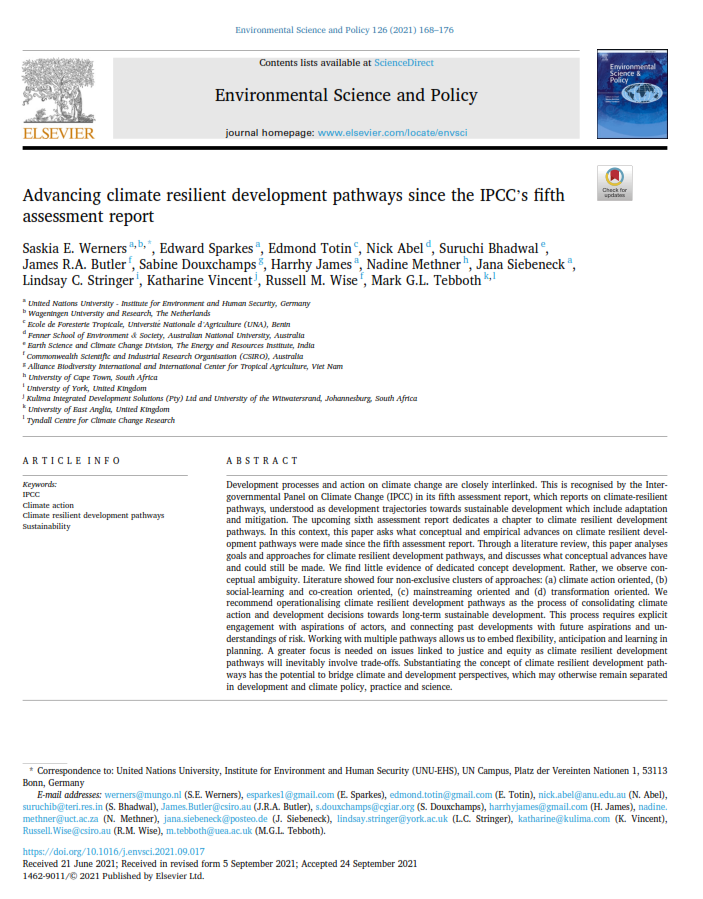A new paper “Advancing climate resilient development pathways since the IPCC’s fifth assessment report” has just been published in the journal Environmental Science and Policy. The paper, led by Saskia Werners with an author team that includes Katharine Vincent, reviews conceptual and empirical advances on climate resilient development pathways since the IPCC’s fifth assessment report.

Through a literature review, this paper analyses goals and approaches for climate resilient development pathways, and discusses what conceptual advances have and could still be made. It finds little evidence of dedicated concept development. Rather, the years that have passed since the IPCC fifth assessment report have been characterised by conceptual ambiguity. Literature showed four non-exclusive clusters of approaches: (a) climate action oriented, (b) social-learning and co-creation oriented, (c) mainstreaming oriented and (d) transformation oriented. The paper recommends operationalising climate resilient development pathways as the process of consolidating climate action and development decisions towards long-term sustainable development, which requires explicit engagement with aspirations of actors, and connecting past developments with future aspirations and understandings of risk. A greater focus is needed on issues linked to justice and equity as climate resilient development pathways will inevitably involve trade-offs. Substantiating the concept of climate resilient development pathways has the potential to bridge climate and development perspectives, which may otherwise remain separated in development and climate policy, practice and science.
